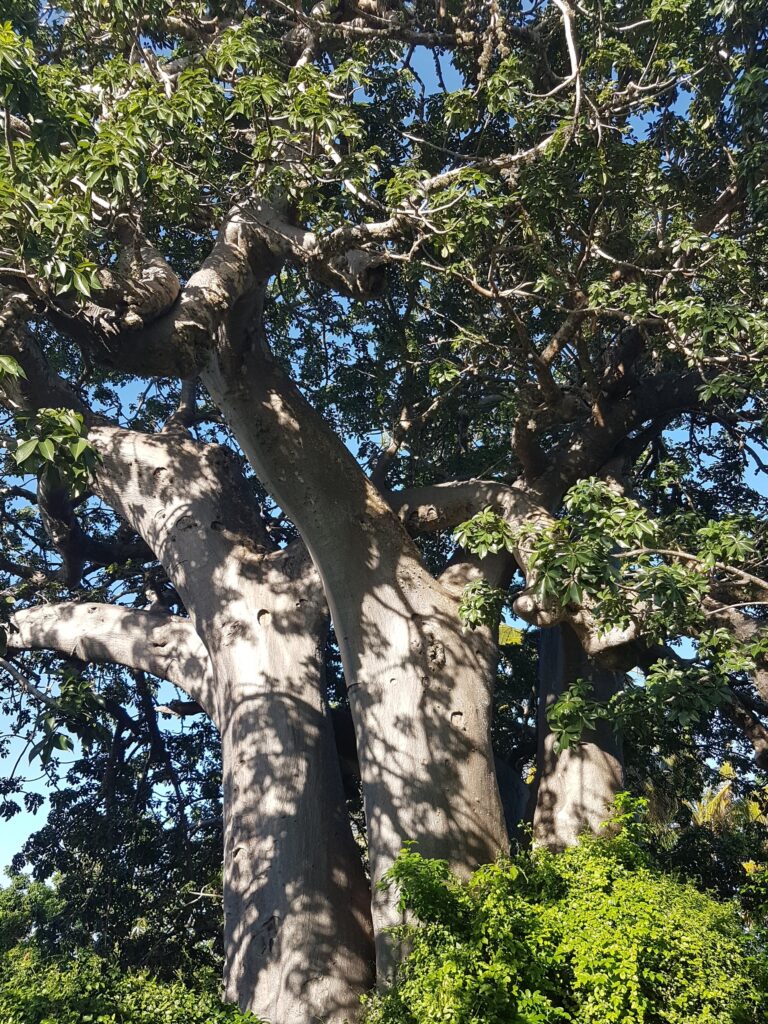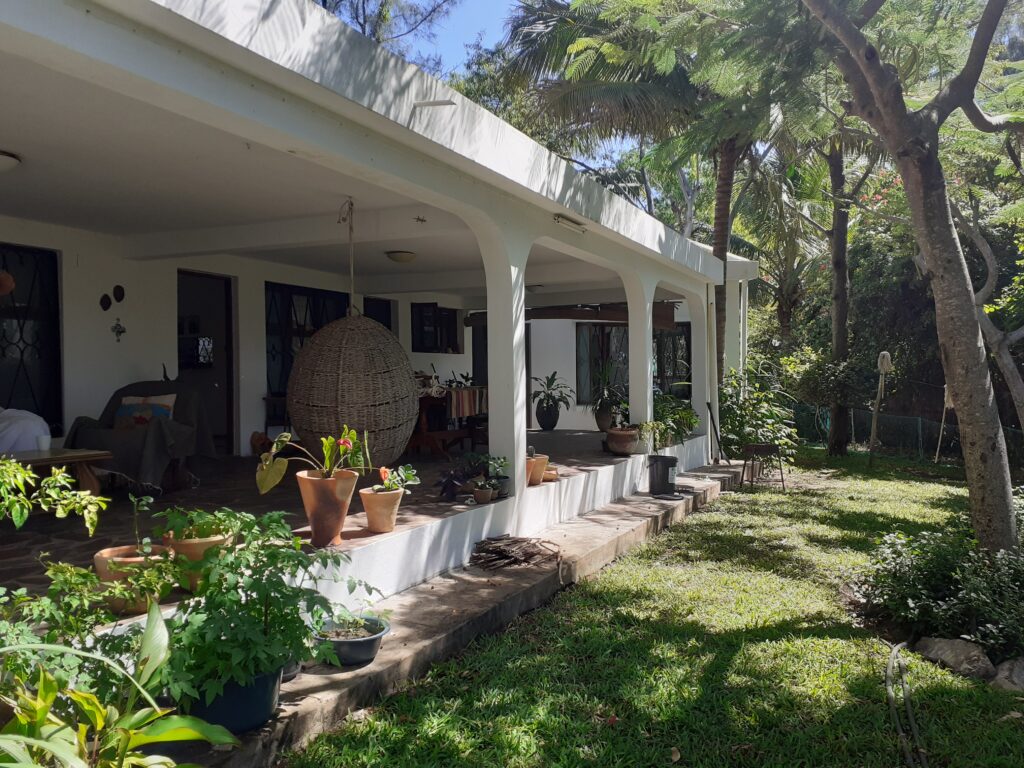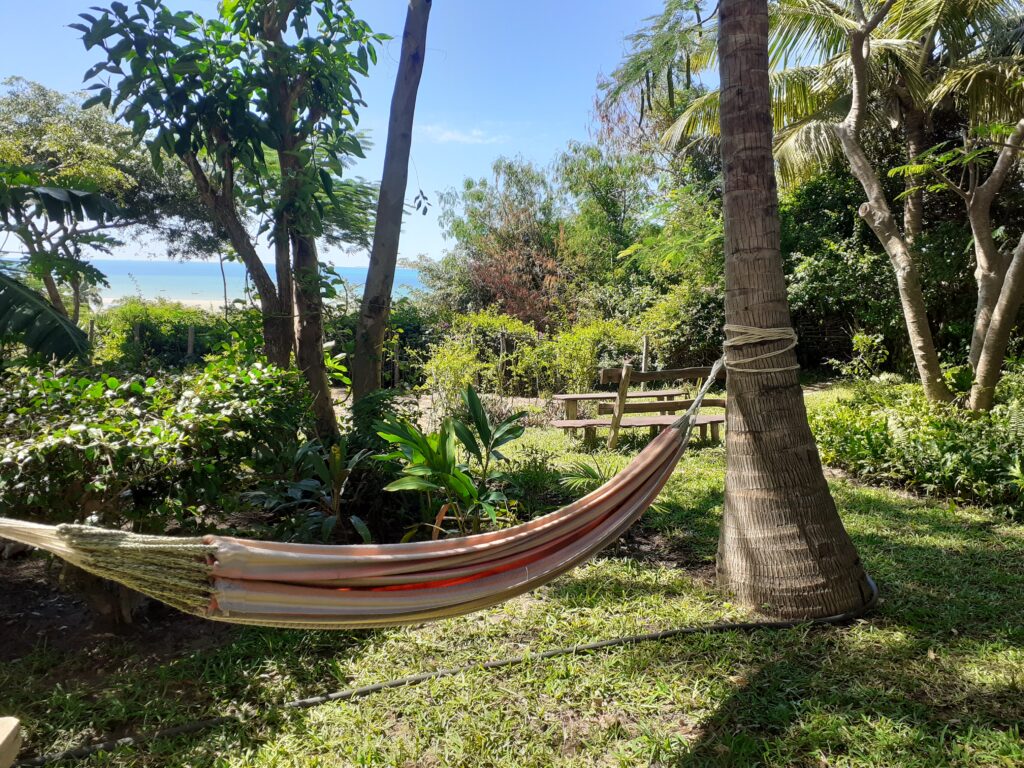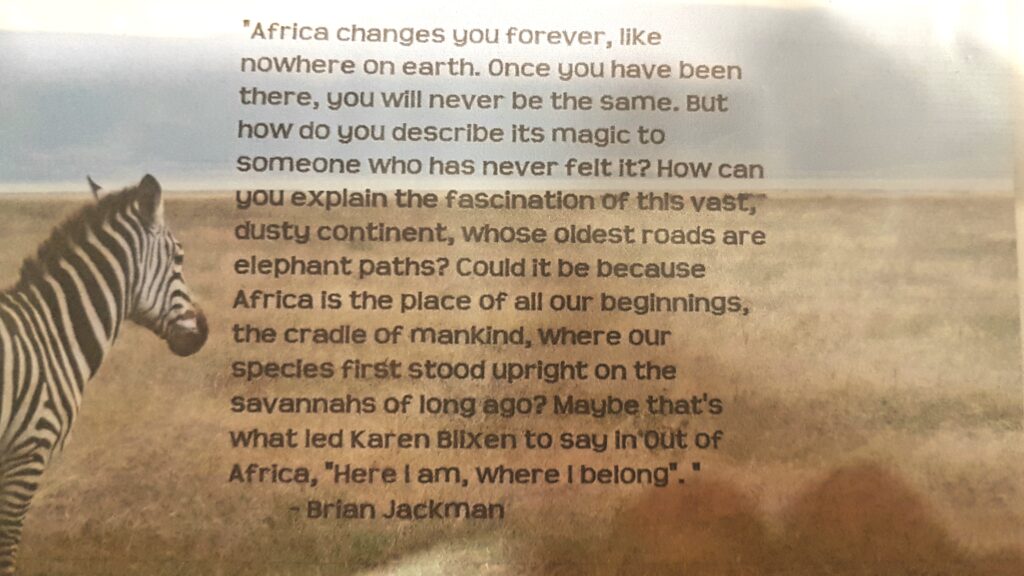Africa Calling
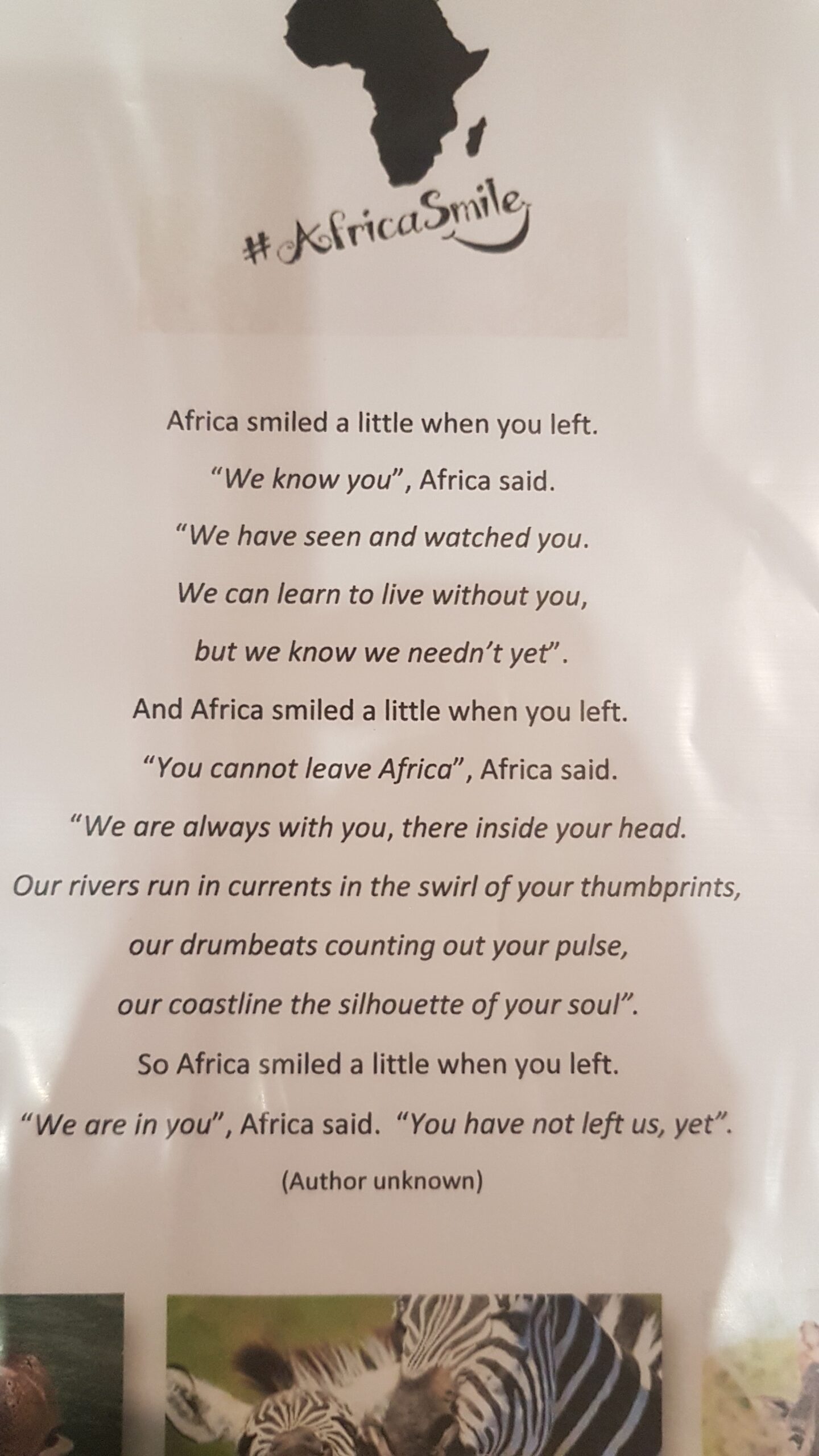
The sun rises in the east and over here that’s the oceanside, a red ball climbing up from the sea. From our garden runs a dense path full of bushes, plants, trees, and butterflies all the way down to the beach, where fishermen in the morning cast their nets or repair the dhows (traditional fishing boats).
Vilanculos lies in a bay behind the Bazaruto Archipelago so there are no waves really and it is lovely to spend the mornings to sit on the little boat in front of our house and listen to the
sounds of the birds, the water and the chatter of the fishermen. Low tide brings me back to ‘the Wadden Sea’ in The Netherlands, though I am a ‘ waldpykje’ as they call it, having grown up in the Frisian woods and not by the sea.
Since my first visit to former Vendaland in the northern part of South Africa in 1995, I kept wanting to go back to Africa. I was lucky that, when I met Gerry, he was quite willing to come along. Many trips and visits to Southern Africa later, and here we are. I never really thought about it before we decided to actually live here in Africa, but a question bothers me from time to time. And now what? I immediately catch myself thinking that it’s a typical (Western) thought because why that question? We are here, now, aren’t we? I wonder if local people also ask themselves that question.
People often ask me, what attracts you so much to Africa? I could never put that into words very well, and still find it difficult. I had a strong feeling to return to this ancient continent. It is something that touches you, an abiding attraction, perhaps a longing for the unknown and for a world we almost don’t know in Europe anymore? A world where the concept of time has a completely different dimension, a world of primal nature, with primal trees and primal animals. But also, above all, it’s the people.
I have always admired Africans who, often in very ordinary conversations on the bus or somewhere along the way, mention things that make me think; gosh, we do all kinds of academic studies on this very topic. They are a wise people and it seems like we have to learn that wisdom all over again.
It’s as if the basic human values that everyone has are more visible here, simple but purer; in Europe often snowed under or buried under a layer of external factors and distractions such as a profession, job, status or position or things you do or have done in the past. The doing and being, which Gerry also pays a lot of attention to in his mindfulness work.
Recently I read Professor Mogobe Ramose’s book Ubuntu. Ubuntu is the root of African philosophy. “The spirit of Ubuntu, that deep African realisation that we are only human through the humanity of other human beings, is not a local phenomenon but has contributed globally to our common quest for a better world.”
In the book, Ramose seeks the connection between African thought and Western science and way of thinking in which vital tenets of Ubuntu as a lifestyle can be incorporated into a new setting. He sees this as a creative process: translating Ubuntu’s traditional core values into modern organisational forms. An inspiring endeavour.
I like this way of thinking and see it as an inspiration for myself, ourselves and what we are trying to do here with MindWise. It feels a little ironic at times, mindfulness courses in Africa, especially in a place where people seem unworried by time, stress or questions like ‘what now?’ and ‘what are you going to do there?’ This certainly doesn’t mean there are no worries.
But more and more I am beginning to see that this kind of thinking is what creates the distinctions and easy classifications between ‘us’ and ‘them’, ‘good’ and ‘bad’, or ‘right’ or ‘wrong’.
Ubuntu is about connection like truly everything else in life as we are all connected. Just being and living here makes me more and more aware of how everything is connected. But also how my mode of thinking works and, especially, how it often doesn’t work. Africa feels like a mirror and some days you look more beautiful than others.
I like the thought of trying to work on that (re)connection through MindWise, in whatever way I can. Here, there is no shortage of inspiration.
